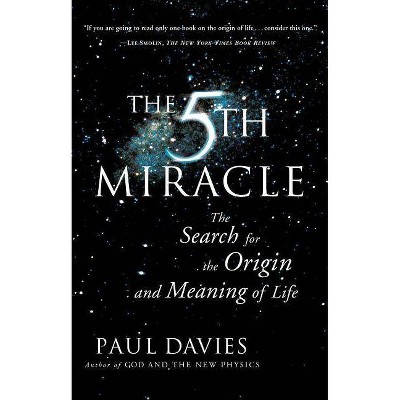Sponsored

Rhetorical Surface of Democracy - by Scott Welsh (Paperback)
$59.99
In Stock
Eligible for registries and wish lists
Sponsored
About this item
Highlights
- The Rhetorical Surface of Democracy: How Deliberative Ideals Undermine Democratic Politics, by Scott Welsh, disputes the idea that democracy has anything to do with public deliberation in pursuit of collective judgment.
- About the Author: Scott Welsh is assistant professor in the Department of Communication at Appalachian State University in Boone, North Carolina.
- 206 Pages
- Political Science, Political Ideologies
Description
About the Book
The Rhetorical Surface of Democracy: How Deliberative Ideals Undermine Democratic Politics, by Scott Welsh, disputes the idea that democracy has anything to do with public deliberation in pursuit of collective judgment. Welsh argues, rather, that the impossibility of any kind ...Book Synopsis
The Rhetorical Surface of Democracy: How Deliberative Ideals Undermine Democratic Politics, by Scott Welsh, disputes the idea that democracy has anything to do with public deliberation in pursuit of collective judgment. Welsh argues, rather, that the impossibility of any kind of public judgment is the fact that democracy must face.Review Quotes
Any rhetorician who has become too complacent with platitudes about "deliberative democracy" and the 'common good' should welcome Scott Welsh's book, The Rhetorical Surface of Democracy: How Deliberative Ideals Undermine Democratic Politics, with the same sense of gratitude that Socrates expressed toward Callicles: 'I realize that a person who is going to put a soul to an adequate test to see whether it lives rightly or not must have three qualities, all of which you have: knowledge, goodwill, and frankness' (Plato, Gorgias, 487a). All three of these qualities are indeed present in Welsh's book: a comprehensive knowledge of major philosophers and contemporary rhetorical theorists; a refreshing frankness and critical eye toward democratic and rhetorical pieties; and a basic goodwill toward those he critiques. And, like a character in Plato's Gorgias, Welsh enters the dialectical fray ready to take on all comers, using every argumentative resource to strip away illusions, undermine objections, reveal essential facts, and make us face up to the truth. And that truth is this: 'democracy is about individual people and power, not about producing an always fıctitious common good or will of the people' (101). And from this truth follows the hard fact that those who champion such fıctitious entities actually undermine democracy because 'they direct our energies to the imaginary collective production of shared judgments and common futures, leaving everyone disappointed, fearful, or resentful' (108). Here is a bold statement that Welsh upholds with considerable skill and forcefulness, making his book a contribution to rhetorical scholarship that warrants attention, particularly from those he challenges.
Asserting the impossibility of public judgment, collective will, and the common good--notions underwriting most current theorists' characterizations and celebrations of democracy--The Rhetorical Surface of Democracy builds an innovative conceptualization of rhetorical democracy that will undoubtedly spark spirited debate. Scott Welsh's careful parsing of trends in democratic theory offers a complex discussion of the relationship between rhetoric, democracy, and power. [This book] provides readers new to democratic theory with a thorough and thoughtful engagement of foundational concepts, and it encourages readers well-versed in democratic theory to reevaluate taken-for-granted assumptions about the normative value of strategic rhetoric in democratic politics.
Scott Welsh has written a terrific book. It is so rich that this short review must pass over many of the thorny, deliciously complex, issues he raises. Welsh's guiding light is Kenneth Burke, whose work he appears to have memorized, and he manages to replicate Burke's wide-ranging curiosity along with his refusal to accept prevailing pieties. ... Welsh does not shy away from the toughest questions and his meditations on them are always thought-provoking. He fully grasps the difficulties, even paradoxes, that are part and parcel of the democratic project.
Scott Welsh makes a lively case for considering rhetoric in the service of democracy as the strategic pursuit of power through words and symbols rather than as a dialogical pursuit of practical wisdom. Welsh provides a realistic discounting of idealistic models of deliberative democracy and political rhetoric. In place of an illusive common good, he argues for a conception of democracy that entails an ongoing nonviolent competition for habitable space. Welsh's argument is a welcome provocation to revise our working assumptions about democracy and its rhetorical enactment.
About the Author
Scott Welsh is assistant professor in the Department of Communication at Appalachian State University in Boone, North Carolina.Dimensions (Overall): 9.0 Inches (H) x 6.0 Inches (W) x .4 Inches (D)
Weight: .66 Pounds
Suggested Age: 22 Years and Up
Number of Pages: 206
Genre: Political Science
Sub-Genre: Political Ideologies
Publisher: Lexington Books
Theme: Democracy
Format: Paperback
Author: Scott Welsh
Language: English
Street Date: June 10, 2014
TCIN: 1004354006
UPC: 9780739197684
Item Number (DPCI): 247-34-9154
Origin: Made in the USA or Imported
If the item details aren’t accurate or complete, we want to know about it.
Shipping details
Estimated ship dimensions: 0.4 inches length x 6 inches width x 9 inches height
Estimated ship weight: 0.66 pounds
We regret that this item cannot be shipped to PO Boxes.
This item cannot be shipped to the following locations: American Samoa (see also separate entry under AS), Guam (see also separate entry under GU), Northern Mariana Islands, Puerto Rico (see also separate entry under PR), United States Minor Outlying Islands, Virgin Islands, U.S., APO/FPO
Return details
This item can be returned to any Target store or Target.com.
This item must be returned within 90 days of the date it was purchased in store, shipped, delivered by a Shipt shopper, or made ready for pickup.
See the return policy for complete information.
Trending Non-Fiction


$18.28
was $19.58 New lower price
4.7 out of 5 stars with 17 ratings

$4.59
MSRP $7.99
Buy 2, get 1 free select books
4.8 out of 5 stars with 123 ratings

$6.20
MSRP $10.95
Buy 2, get 1 free select books
4.8 out of 5 stars with 33 ratings

$7.09
MSRP $9.99
Buy 2, get 1 free select books
4.9 out of 5 stars with 46 ratings












